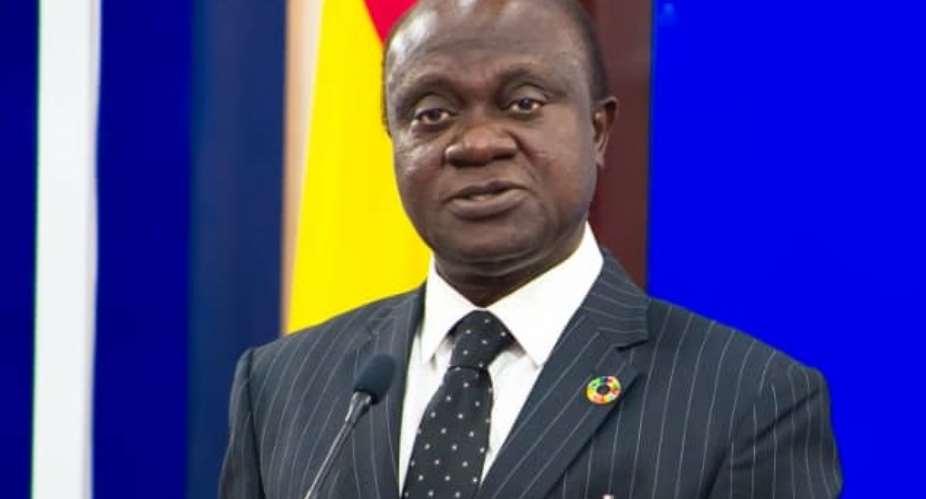There is a need for a thorough reevaluation of Ghana’s economic policies and strategies to achieve sustainable development, the Chairman of the National Development Planning Commission (NDPC), Professor George Gyan-Baffour, has said.
Addressing the gathering at a symposium organised by the University of Education, Winneba and Sustainable Development Solutions Network (SDSN), Ghana Chapter in the Central Region in Accra, Prof. Gyan-Baffour highlighted Ghana's efforts over the years to implement economic interventions aimed at recovery, growth, and sustainability.
"Since Ghana's independence in 1957, all governments have been implementing economic policies and strategies to achieve sustainable development,” he stated.
Prof. Gyan-Baffour pointed to significant programmes like the 1983 Economic Recovery Programme (ERP) and various Medium-Term National Development Policy Frameworks as pivotal in stabilising Ghana’s macroeconomic environment and encouraging private investment.
However, he acknowledged that Ghana's economy has remained vulnerable to external shocks, exposing "cracks in our economic policies and strategies."
The recent global crises, he said, led to a fiscal deficit spike from 7.5% of GDP in 2019 to 15.2% in 2020, while public debt rose from 63% to 79% of GDP over the same period.
To overcome these problems, Prof. Gyan-Baffour underlined the importance of consolidating the small economic gains Ghana has realised and initiating more forward-looking economic policies and strategies to strengthen our economic growth to achieve sustainable development.
He highlighted the unveiling of Ghana's Vision 2057, a long-term development framework aimed at transforming the country into an upper-middle-income economy by its 100th anniversary of independence.
The vision, he explained, would guide subsequent governments in developing economic programmes, projects and actions to achieve the goal of a prosperous, inclusive, and resilient economy.
"The future manifestos, Coordinated Programmes of Economic and Social Development Policies of governments, National Development Policy Frameworks and Plans should aim at achieving this goal of becoming an upper middle-income economy by the time Ghana celebrates her 100th anniversary of independence," he stated.
Prof. Gyan-Baffour emphasised the need for a collective effort to build a more sustainable and prosperous Ghana, calling for a "shared responsibility, a commitment to collaborative action and a spirit of inclusivity" among all stakeholders.
The symposium, he said, should serve as a springboard for further collaboration to identify innovative solutions and strengthen the country's path towards sustainable development.





 NDC to meet Central regional executives over withdrawal of 'sexy' Assin Central ...
NDC to meet Central regional executives over withdrawal of 'sexy' Assin Central ...
 NDPC Director-General Dr Kojo Essiem Mensah-Abramp dies
NDPC Director-General Dr Kojo Essiem Mensah-Abramp dies
 July 2: Cedi sells at GHS15.58 to $1, GHS14.59 on BoG interbank
July 2: Cedi sells at GHS15.58 to $1, GHS14.59 on BoG interbank
 We expected Akufo-Addo to reduce his large gov’t — Minority to boycott vetting o...
We expected Akufo-Addo to reduce his large gov’t — Minority to boycott vetting o...
![Minister for Chieftaincy and Religious Affairs, Stephen Asamoah Boateng [File Photo]](https://cdn.modernghana.com/content__/84/56/722024123432-0f730m4yxs-ammn.jpg) Military personnel are trained to shoot and kill; they must not be involved in e...
Military personnel are trained to shoot and kill; they must not be involved in e...
 Amin Adam must not be remembered as the last fiscally reckless Finance Minister ...
Amin Adam must not be remembered as the last fiscally reckless Finance Minister ...
 Amin Adam’s real test is how he can ward off highway 'gbaga midus', vampires fro...
Amin Adam’s real test is how he can ward off highway 'gbaga midus', vampires fro...
 Ghanaians must take back the country, salvage the little left after years of NPP...
Ghanaians must take back the country, salvage the little left after years of NPP...
 Ex-gratia was to prevent corruption but it's no more serving the purpose — Speak...
Ex-gratia was to prevent corruption but it's no more serving the purpose — Speak...
 Alleged lavish Miami trip: Sammy Gyamfi sues Asaase Radio, Wilberforce Asare, tw...
Alleged lavish Miami trip: Sammy Gyamfi sues Asaase Radio, Wilberforce Asare, tw...
